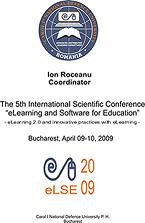OPTIMIZING FEEDBACK IN ONLINE COURSES - AN OVERVIEW OF STRATEGIES AND RESEARCH
OPTIMIZING FEEDBACK IN ONLINE COURSES - AN OVERVIEW OF STRATEGIES AND RESEARCH
Author(s): Phil ICE , Jennifer RICHARDSONSubject(s): Education
Published by: Carol I National Defence University Publishing House
Keywords: Community of Inquiry; audio feedback; online learning environments; social presence; cognitive presence; teaching presence
Summary/Abstract: This paper reports on two major studies and other related research focusing on the use of audio feedback as a replacement for text-based feedback in asynchronous environments. Previous research has demonstrated that participants in online courses can build effective learning communities through text based communication alone. Similarly, it has been demonstrated that instructors for online courses can adequately project immediacy behaviors using text-based communication. However, the studies described herein indicate that auditory elements strengthen both the sense of community and the instructor’s ability to affect more personalized communication with students. In the foundational study, findings revealed extremely high student satisfaction with embedded asynchronous audio feedback as compared to asynchronous text only feedback, with four themes accounting for their preference: 1. Audio feedback was perceived to be more effective than text-based feedback for conveying nuance, 2. Audio feedback was associated with feelings of increased involvement and enhanced learning community interactions, 3. Audio feedback was associated with increased retention of content, and 4. Audio feedback was associated with the perception that the instructor cared more about the student. Document analysis revealed that students were three times more likely to apply content for which audio commenting was provided in class projects than was the case for content for which text based commenting was provided. Subsequent studies validated these findings on a multi-institutional basis and have provided direction for best practices.
Journal: Conference proceedings of »eLearning and Software for Education« (eLSE)
- Issue Year: 5/2009
- Issue No: 01
- Page Range: 181-186
- Page Count: 6
- Language: English

